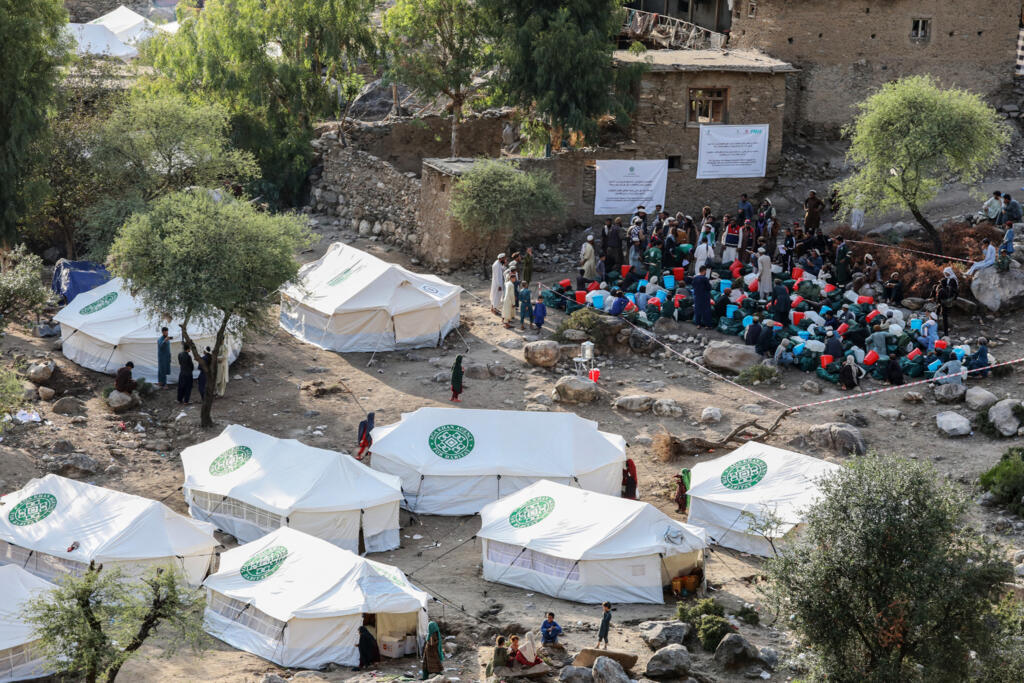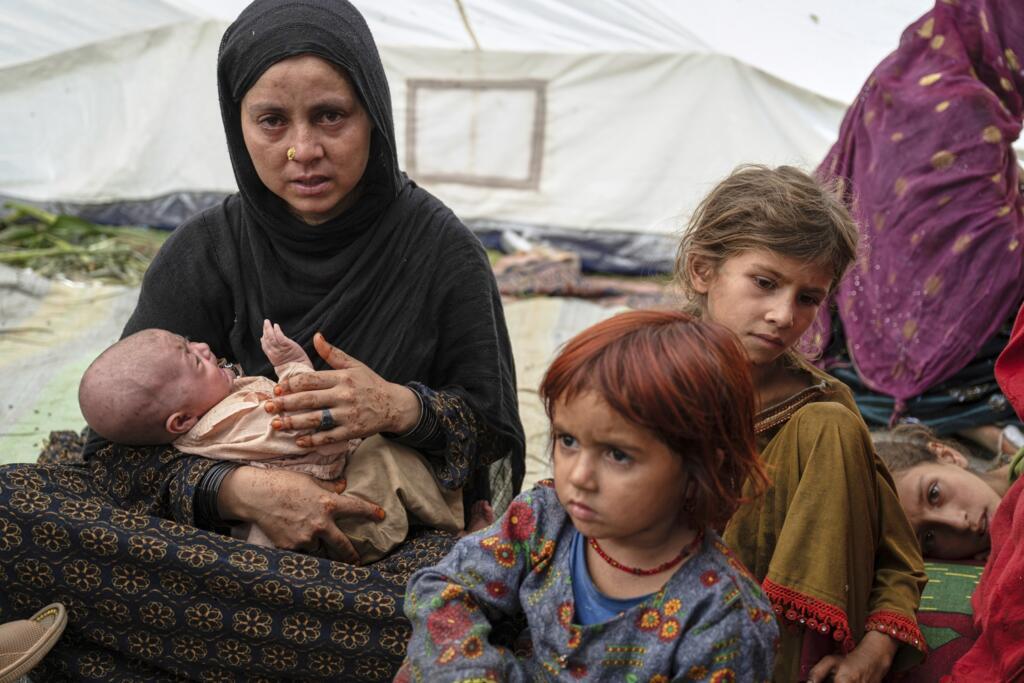
In the wake of a series of earthquakes that have devastated eastern Afghanistan, the humanitarian response remains critically underfunded, with Western donors slow to act and gender-based restrictions compounding the crisis for Afghan women. Aid workers from French NGOs told RFI about the challenges on the ground.
More than 2,200 people were killed after the magnitude-6.0 earthquake struck eastern Afghanistan just before midnight on 31 August, making it the deadliest quake to hit the country in decades.
Thousands of people remain displaced or homeless across Nangarhar and Kunar provinces and many isolated villages in mountainous areas are difficult to access, according to Laura Chambrier, of the French NGO Première Urgence Internationale (PUI).
“The main needs are temporary shelter, primary healthcare, mental health and psychological support, and water and sanitation services,” she said.
She added that thanks to supplies already in place, their teams were able to respond with some autonomy, but that reaching remote areas is becoming “more and more complicated” as winter approaches.
The United Nations’ call for $139.6 million in aid remains unmet, and the consequences are plain to see.
“Afghanistan is facing a lot of funding gaps because donors are reducing humanitarian and development aid,” said Chambrier.
She added that the cut in US foreign aid earlier this year had resulted in PUI stopping activity in 60 healthcare facilities and almost 400 people losing their jobs – before the earthquake.
"Now with the earthquake, we have even more people in need," she said.
Rescue efforts underway as Afghan earthquake leaves hundreds dead
Foreign aid cuts
“The funding coming in these days for [disaster] response is limited compared to a year ago,” Hans Johansen, the Kabul-based Afghanistan co-director of the French NGO Acted, told RFI.
He too cited the US government's slashing of funding for USAID and other Western countries taking similar steps. “The earthquake response has attracted around $10 million, whereas in the early years, you would have seen a much higher number,” he said.

Western governments’ hesitancy to step in is also being shaped by their refusal to recognise the Taliban.
Aid typically bypasses national authorities by funding NGOs directly, but, as Johansen points out, the “hesitancy towards the de facto authorities means there is less attention on this crisis” in general.
According to a 10 September policy note from the Dutch Ministry of Foreign Affairs – traditionally a large donor – the EU "announced it would free [up] €1 million for aid by humanitarian organisations on the ground", but this note does not include any mention of cooperation with the Taliban government directly.
"For Afghanistan, because there is a hesitancy towards the de facto authorities, it means that there is less attention for this crisis."
COMMENT by Hans Johansen ACTED on Afghanistan earthquake
Women left behind
Humanitarian workers also cite Taliban decrees as creating unique risks for women in the aftermath of the disaster.
“Taliban edicts bar women from moving freely without a male guardian, ban them from many forms of work and strictly limit access to healthcare,” according to a report by the UN Assistance Mission in Afghanistan.

To reach female survivors, NGOs must navigate Taliban policy. “We have the authorisation to work with female medical staff [but] they have to be accompanied [by] a male relative,” says Chambrier.
For agencies without female staff, or where access is further restricted, there are fears women will be left behind or go untreated for days, as male aid workers are not allowed to touch them.
‘All they dream of is leaving’: the reality of life for women under the Taliban
“Women and girls will again bear the brunt of this disaster, so we must ensure their needs are at the heart of the response and recovery,” warned UN Women Afghanistan Special Representative Susan Ferguson in a statement.
She pointed out that during the country's last major earthquake in Herat in 2023, "nearly six out of 10 of those who lost their lives were women, and nearly two-thirds of those injured were women".
“As a medical organisation, we are able to have female staff because of the medical activities. And we are adapting our activity to be sure so we can reach the women,” Chambrier says.
"But it is not easy for the ones that are not [able to move freely]," she said, referring to women without male relatives at hand to act as guardians.







